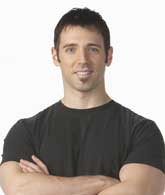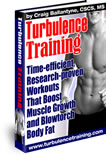Clean Eating
 Hey folks in part 3, Dr. John Berardi describes the simple approach to his “Precision Nutrition” program.
Hey folks in part 3, Dr. John Berardi describes the simple approach to his “Precision Nutrition” program.
In today’s expert interview series, the doctor discusses another exclusive coaching method that he uses when it comes “how” and “what” you should be eating.
******************
Craig: We’ve covered a lot for the beginners going over all the essentials that everyone should be eating daily. You really mentioned some great stuff about the habits. Do you think we need to go over that a bit more?
John: In response to that question, essentials, I almost have to nod my head to the journalist Michael Pollan. For those who are familiar with his stuff and even for those who aren’t, his summary of good eating is, “Eat food, mostly plants, not too much.” I think it’s a great summary, but I have some criticism about it. In essence, if you eat a high percentage of unprocessed real food daily then that’s a perfect start.
You should be eating more unprocessed food and less of the box processed altered foods on a daily basis. The next part of the statement, “mostly plants,” you want to eat a lot of plant foods, so veggies galore with every meal, including breakfast and your snacks.
Now, in our coaching programs we shoot for FIVE “one cup” servings a day, so that becomes one of the nutrition habits that people have to follow. Although eating mostly plants is starting to sound like a vegetarianism thing, but it’s. We shouldn’t make it an either/or thing (veggies or meat), instead our plates should have heaping amounts of veggies on it, and if we do eat meat should be sitting on a plate loaded with veggies.
Then the last part, the “not too much part”, that’s a great concept also where you’re eating enough to be satisfied, but not full. This is very difficult for people because they don’t know what hunger really feels like, and they’re not comfortable with hunger. This is why I like the idea of intermittent fasting once in a while. It helps you to understand what hunger feels like and to realize that you’re not going to blow apart if you have a day without food.
In our coaching programs, we use a concept called Hari Hachi Boo, which roughly translates to eat until you’re about 80 percent full and then stop. By saying, “Don’t eat too much,” it’s not really clear. It’s too ambiguous. It takes a while for people to understand these the signals, so we teach people what that feels like, and then they learn how much to eat.
If you can really master Michael Pollan concept of good eating his three things, you eat food, mostly plants, not too much, it will give people a baseline of what you should be doing every single day, including regular exercising. It’s a great recipe for health and body composition for sure.
I guess the one criticism I have is that while these concepts sound easy, if you’re not in the habit of doing them they can be incredibly nuanced and complex. That’s why everyone likes to quote Michael Pollan’s stuff, because makes for great drop quotes and sound bites, but it’s also why very few people actually eat this way. Change doesn’t happen with vague directives, people only changes when they’re new habits to build are unambiguous and they have a HIGH DEGREE OF CONFIDENCE that they can actually follow them.
Let’s say you’re a new client and the first day of your fat loss program your trainer says, “Okay, we’re going to get ripped and there are only four things you have to do. From now on you need to exercise every day, eat nothing processed, eat mostly plants, and eat only until you’re 80 percent full.” Now, if you were to ask that person after this directive was handed down how confident they were that they could do this every single day on a scale of one to 10, I’m imagining they’re not going to give you a 10.
If you have to exercise every day, eat nothing processed, mostly plants, only until 80 percent full, how confident are you that you can do it on day one of a fat loss program? Probably not very confident. The problem is if you’re not saying nine or 10 on the confidence scale it’s not really going to happen. So, while the advice is great it’s just isn’t going to work unless you’re confident you can do it.
That’s why we use clear unambiguous habits asking our clients to do only one thing at a time. It’s why we say, “For the next two weeks you’re going to eat this amount of fish oil. Then the in two weeks, you’re going to do this with your carbohydrates.” This way we make sure they’re confident and can do it before we actually assign it to them.
To be honest, I think it’s one of the reasons we have the HIGHEST FAT LOSS SUCCESS rate in the industry for this type of coaching, not only for short term fat loss but for fat loss maintenance over time. So, a year later people have maintained the fat loss that they’ve seen on our program and usually those rates are super high.
I think again you can see the theme I keep coming back to sort of change philosophy and change theory, because I think that’s how this whole thing works. I spent a lot of my life learning about the physiological side, about the cells and the biochemistry and it’s pretty clear that I know what I’m talking about there, but the part where I think I was disappointed by my learning in school, sometimes I joke that for coaching my PhD was actually a waste of time, is that you never learn how to coach, you never learn how people actually change, you never learn how real human beings work when you study the physiology all the time.
That’s where making a physiological recommendation has to come hand in hand with a great approach for laying that out to someone and coaching them through the process.
That’s all for today. Join us in part 5 when the doctor shares with us what he learned from his vegan experiment.